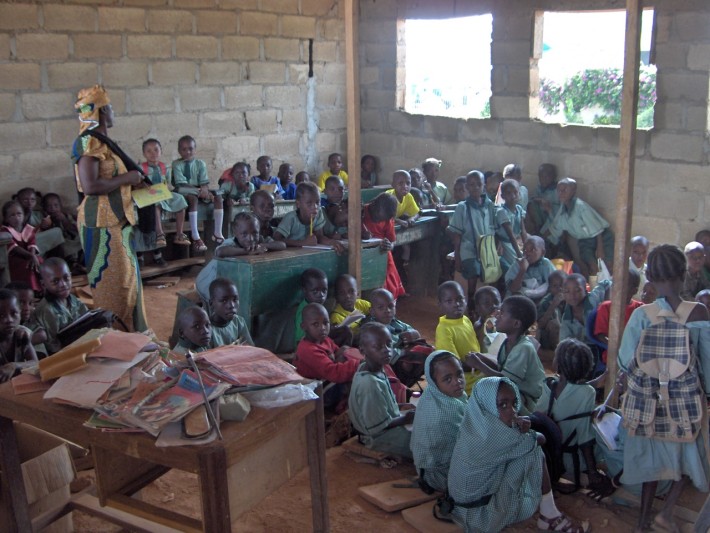The Islamic Development Bank (IDB) is set to invest N19.3billion in Bilingual Education Project (BEP) in nine northern states in Nigeria,
This was made known by the president of the group, Dr. Ahmad Mohammed Ali in Saudi Arabia when he led other executives of the bank to host the Emir of Kano, Muhammad Sanusi at the organisation’s headquarters in Jeddah.
He also listed the states that would benefit from the investment as Adamawa, Borno, Gombe, Kaduna, Kano, Kwara, Nasarawa and Niger states.
“This project was successful in Niger and Chad Republics where the Madrasa and Quranic Schools were worked upon in such a way that it facilitated the enrolment of graduates of the schools in public schools. The establishment of this programme would help Nigeria overcome some of its educational challenges like illiteracy and also enable those that learned in the Madrasa to be integrated into public schools,” Ali said.
He, however, emphasised that the board of the bank has approved the investment but the final approval lies with the appropriate authorities in Nigeria.
The acting country manager, Sierra Leone IDB, Mamoud Kamara, and the manager, West Africa Region Country Programme Department, in separate presentations, said BEP is in high demand and that nine countries of Senegal, Gambia, Mali, Burkina Faso, Niger, Chad, Nigeria, Djibouti and Somalia have been approved, while seven others, Guinea, Sierra Leone, Cote D’Ivoire, Togo, Benin, Cameroon and Comoros have formalised their requests.
Emir Sanusi who led a delegation said he would take the project as a personal responsibility and work towards getting the necessary approvals and ensuring its actualisation in the interest of the country.
He also urged the IDB to consider investing in solar energy in Nigeria, saying the abundance of sun makes it a veritable source of power which is being used in many parts of the world.
The presenters lamented that one in six out-of-school children worldwide are in Nigeria, totaling over 10 million, which was caused by extremism and insecure school environment, poverty and high cost of schooling among others, leading to widespread illiteracy and many other negative consequences.
They also said that the project would lead to the building of 30 modern schools with 720 classrooms, 30 ICT labs, training of 1,800 teachers and provision of 1.7 million textbooks among others as benefits of the investments.


